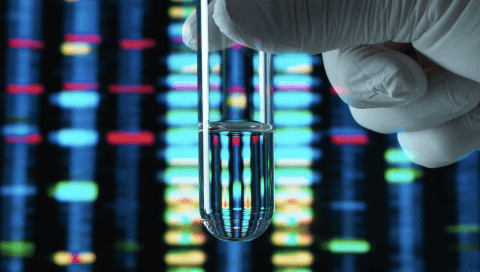Genetics, Research & Preclinical Development
More Genomics, Less Fear
January 25, 2023
The genome is the how and why that define us
By: Adolfo Ferrando, MD, PhD, Executive Director, Therapeutic Area Genetics, Oncology, Regeneron Genetics Center

Adapted from an article originally published in La Nueva España in Dr. Ferrando’s hometown of Oviedo, Spain.
Tall and somewhat hunched over by the weight of the years, he took notes with a tiny pencil, almost consumed so many times sharpened. He spent two hours in the library scrambling to transcribe into a pocket notebook the notes he extracted from three volumes bound in green leather. "We are chemistry, time oxidizes us, that's why we get old," he told me as he picked up his notes. "But there's something else, and the answer lies in the genes," he added. I remember it like it was yesterday. It was 1990, I was studying medicine and the race to sequence the human genome had just begun. Thirteen years later the first draft was published, 85% complete and in 2022, the complete sequencing of the 3,054,815,472 concatenated elements (A, C, G, T) that define us all as a species and each one as an individual is finally finished. This momentous moment, today, culminates a journey of four billion years of evolution in which a species, ours, has for the first time in its hands the knowledge of the very essence of its being.
The genome, our genome, is the how and why that defines who we are, where we come from and where we are going. We are the same humans who painted the horse in the Cueva de la Peña, who engraved the idol of Peña Tú and who erected the dolmen of Merillés. We come from a lost ancestor, distant, ancestral and common to the Neanderthal man and the Denisovan man. Humans also with whom we share not only the planet, but also the culture and who in that meeting bequeathed us part of their very essence, part of their genome. We are going to a future in which we are already eight billion individuals, eight billion genomes, all unique, all different. This future, ours, is a future of many, of all, of hundreds of billions; it is a future of opportunity: "Because the answer is in the genes." Thus, the transformative effect of genomics in medicine is today unquestionable. Population-scale sequencing projects, like our work in the Regeneron Genetics Center in which the genetic data of millions of individuals are contrasted with each other in search of singularities, are called to define the variants that define our risk and those that protect us from getting sick. The origin of diseases has ceased already and will cease to be even more of a mystery, arcane, recondite, incomprehensible thanks in large part, to the knowledge that the study of the genome has provided and will provide us. The impact already present in the clinic is the development of specific, targeted and personalized therapies. The race has only just begun. More genomics, less fear.